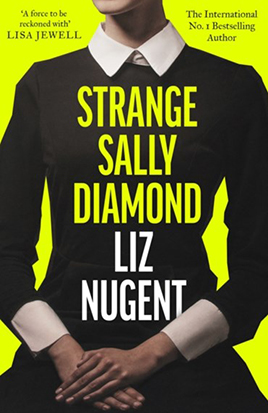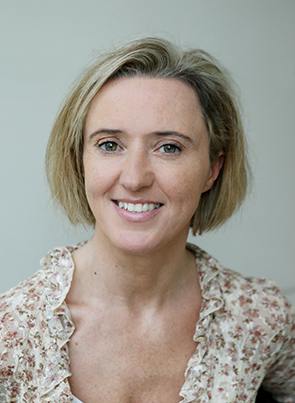

- Category:Fiction (General), Crime Fiction
- Date Read:15 April 2024
- Year Published:2023
- Pages:362

Warning: there are spoilers in this review
“Put me out with the bins,' he said, regularly. 'When I die, put me out with the bins. I'll be dead, so I won't know any different. You'll be crying your eyes out,' and he would laugh and I'd laugh too because we both knew that I wouldn't be crying my eyes out. I never cry”
This book can funny at times. Very funny. Strange Sally Diamond starts with Sally discovering that her father has died in his sleep, and following comments he had made to her many times, she throws his body out with their garbage to honour his wishes: into their domestic incinerator; one that does not get to a sufficient temperature to cremate a body properly. Things start to go badly for Sally when her literal obedience to her father’s comments is discovered by the police. But despite this funny opening and the general humour from Sally'’ strange way of approaching the world, this is also a very dark and disturbing story.
Sally’s actions in disposing of her father, not unexpectedly, creates an uproar in her village, along with a police investigation. Of course there is the suspicion that she had killed her father and was attempting to dispose of his body. Sally thinks this is the reason for the media frenzy she is subjected to, not knowing that everyone else has realised who she is, and that everyone wants an update on a sensational story from around 35 years earlier.
Sally, it turns out, is the daughter of a woman who was kidnapped when she was 11 years old, and kept locked up for 14 years. She was regularly raped and abused by her captor. When finally rescued, Sally and her mother spent a year in a psychiatric facility. Her mother was too traumatised to recover and eventually killed herself. Sally was then adopted by the (married) psychiatrists who were treating them. Sally has no memories at all of her life before her 7th birthday: not of her mother, or their prison or of anyone from that time. She has lived a mostly isolated life, rarely leaving the small village she was raised in and having little contact with other people. The paedophile who was her biological father managed to escape from Ireland and was never captured.
There are a few people in Sally’s world who care for her and who help her start living what most people would consider a normal life. And they largely succeed. Sally slowly makes friends with a few people, and she finds a job that she loves. She also starts seeing a therapist who helps her deal with her angry and sometimes violent response to situations in which she feels threatened, and who gives her strategies for dealing with common situations. All is looking good for Sally.
But there is a second narrative voice in this story, that of Peter. Peter, it turns out, is Sally’s older brother. Sally’s mother would barely speak to anyone when freed and did not mention that she had a second child, one that was taken away from her by her captor. As a male child he had value to his father, so he was raised separately to his other captives. When he fled Ireland, he took the boy with him, and raised him in New Zealand.
The chapters narrated by Peter are warped by his being raised in isolation by a misogynistic paedophile. He loves his father and it takes many years for him to realise how evil his father is. I don’t think he ever truly realises how abusive his father was to him, as the form of his abuse was different to that of his mother’s or his sister’s.
Between the two narratives we get the full story of Sally and Peter’s biological parents, and the contrast of difference between the lives of two people who share hereditary traits but who have very different upbringings. At about two thirds into this book, I thought it was going to mainly be about nature vs nurture. The story emphasises the contrast between the early life of each character and then of their later lives. Both were raised in a form of isolation and both are never told the truth about their lives by a father. Nugent humanises both Sally and Peter, and you genuinely feel for both of them and the trauma they go through in their lives, and how differently each of them lives their lives when they get the chance to do as they wish. Each is flawed and complicated, but each is also understandable despite everything they do.
Sally is a very likeable character, and her inner thoughts of other people and of social situations provide most of the humour in this story, such as her thoughts at a funeral that it was a waste to buy flowers for a dead man. But by this time she has learned not to voice such opinions in public. Her social awkwardness can be explained by the circumstances of the trauma in her early life, and by her adopted father allowing her to stay isolated as she grew up. From the age of seven she was raised by two people who cared for her and who tried to keep her safe. Or at least that’s what we think until near the end of the book, where we learn that her father regarded her as more of an experiment than as a child to be raised with love and care. Peter is raised completely by his biological father, and although he believes at the time that his father only acted to protect him, in reality he is abused his entire life. Sally is a strong character and deals wonderfully after the death of her adopted father. She starts to build a happy and independent life. But it is shown to be a thin veneer that vanishes when she feels betrayed and abandoned at the end of the book. What had been looking to be a positive story arc and development suddenly crashes, as Sally reverts to how she was in the opening chapter. Worse perhaps, as she no longer has the one thing that has always comforted and calmed her in her life anymore. Although Peter frequently reiterates in the second half of the book that ‘I am not my father’, ultimately we learn that this isn’t true.
The ending is one that I have been thinking about since finishing this book and I still haven’t decided what it means. Possibly it says that there are not always happy endings in life, that some people can be so damaged that they can never be repaired or saved. It’s a bleak ending.
This is an excellent book, one I would recommend to anyone. But it might not be for everyone as it is dark and disturbing and deals with issues that not everyone would want to read about.
